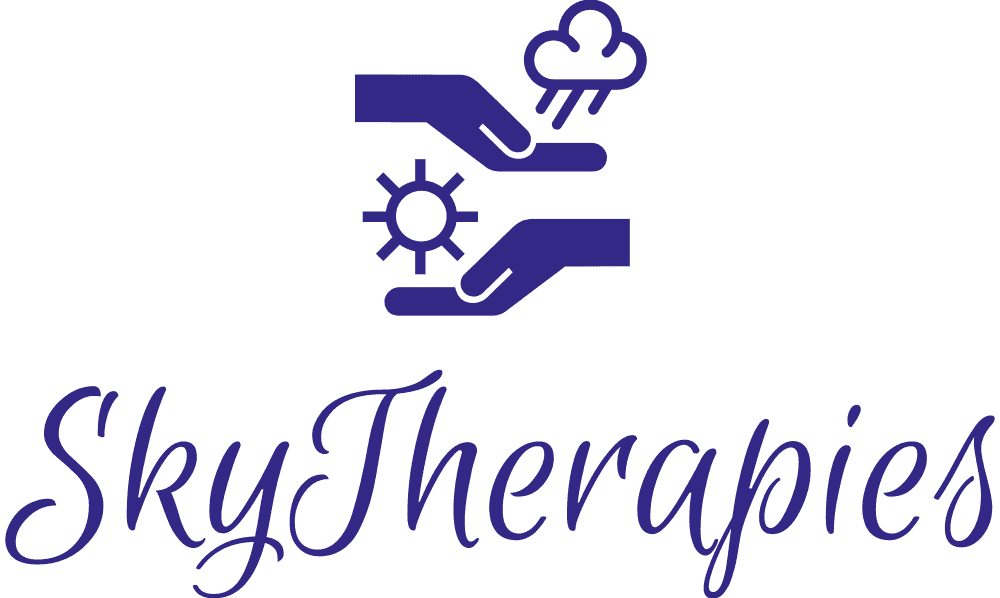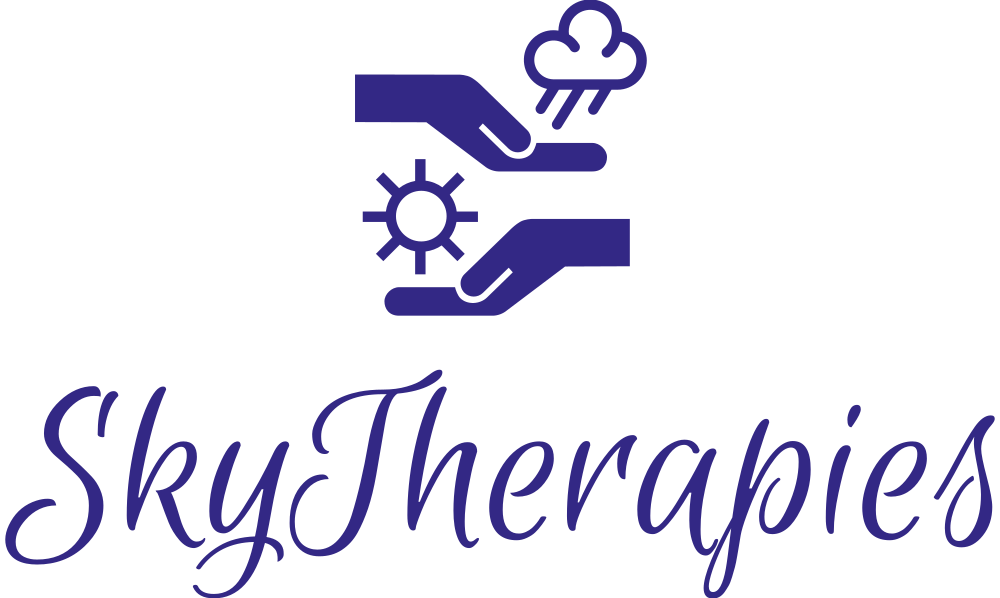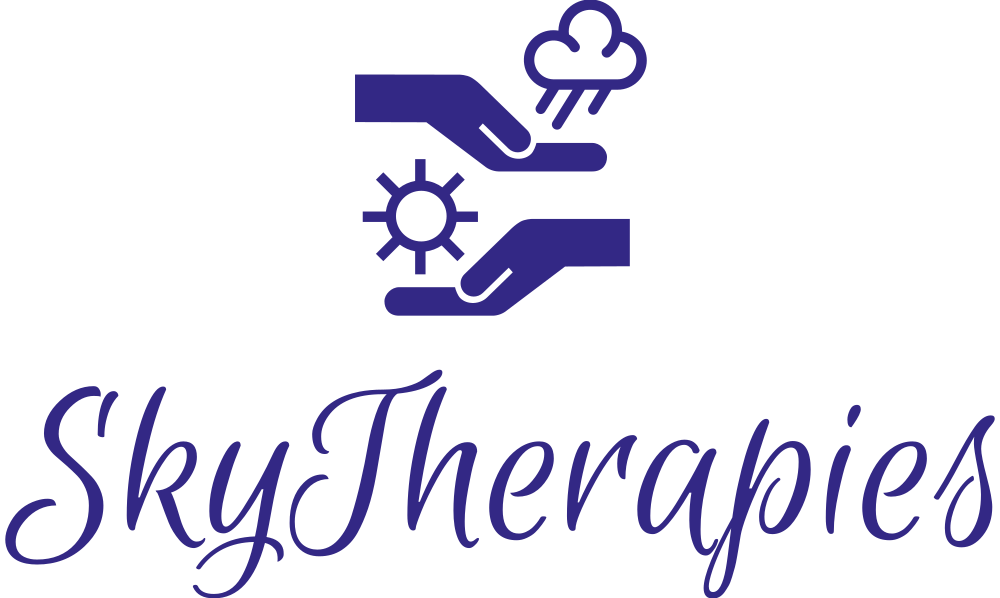Childhood trauma is a deep, often hidden wound that can echo throughout an individual’s life, influencing thoughts, emotions, and behaviors well into adulthood. Whether the trauma stems from neglect, abuse, or early experiences of loss, it can leave an indelible mark on the psyche. For many, childhood trauma manifests as anxiety, depression, relationship difficulties, and even chronic physical ailments that persist for years.
At Sky Therapies, we understand the far-reaching impact of unresolved childhood trauma and the importance of addressing it in a healing journey. The good news is that it’s never too late to heal. Therapy modalities like Deep Brain Reorienting (DBR), EMDR (Eye Movement Desensitization and Reprocessing), and other mind-body therapies can help you break free from the emotional burdens of your past, leading to a life of emotional freedom and healing.
In this blog post, we’ll explore how childhood trauma impacts adulthood, the role of therapy in healing, and how therapies at Sky Therapies can guide you on the path to recovery.
The Lasting Impact of Childhood Trauma
The wounds of childhood trauma can shape how we experience the world in adulthood, often in ways we don’t consciously recognize. Early traumatic experiences can disrupt the development of trust, self-worth, and emotional regulation, leading to a cascade of challenges in later life. Understanding how trauma affects the brain and body is key to understanding the healing process.
- The Emotional Toll: Childhood trauma often leads to emotional scars that manifest as anxiety, depression, and emotional instability. These emotions can arise from unresolved grief, fear, or shame carried from early experiences. For adults who have experienced trauma in childhood, these emotional wounds often surface as struggles in relationships, feelings of unworthiness, or difficulty trusting others.
- The Effect on the Nervous System: Trauma, particularly in childhood, has a profound effect on the nervous system. The brain and body become conditioned to a heightened state of alertness, ready to react to perceived danger. This chronic state of stress can lead to hypervigilance, chronic anxiety, or emotional numbness, and over time, it can contribute to conditions like chronic fatigue, irritable bowel syndrome (IBS), or even autoimmune disorders.
- Difficulty in Relationships: Childhood trauma often disrupts the ability to form healthy, secure relationships in adulthood. Trauma survivors may struggle with intimacy, trust, or healthy communication patterns, often unconsciously repeating unhealthy relational dynamics. These challenges can be compounded by low self-esteem, shame, and feelings of unworthiness that trace back to early experiences.
- Negative Thought Patterns: Trauma can also foster negative thought patterns or core beliefs that impact self-image. Many trauma survivors hold onto beliefs such as, “I’m not good enough,” or “I don’t deserve love,” which can permeate adulthood and shape decisions, behaviors, and interactions with others.
- Physical Health Issues: Childhood trauma is also closely linked to chronic physical health issues. The stress and emotional pain associated with trauma can affect the body in ways that are often unnoticed. For example, trauma may manifest physically as chronic pain, digestive issues, or sleep disturbances, which can persist long into adulthood.
How DBR, EMDR, and Mind-Body Therapies Support Healing from Childhood Trauma
While the effects of childhood trauma can feel overwhelming, it’s essential to remember that healing is possible. Therapy is a powerful tool for addressing the wounds of the past and guiding individuals toward emotional freedom. At Sky Therapies, we use a combination of evidence-based techniques that address both the emotional and physical aspects of trauma, helping individuals move from surviving to thriving.
Deep Brain Reorienting (DBR): Rewiring the Brain for Healing
Deep Brain Reorienting (DBR) is an innovative therapeutic approach that helps individuals process and release emotional pain that is held within the brain and body. DBR works by rewiring neural pathways, allowing the brain to process traumatic experiences more effectively and reduce the emotional intensity associated with past wounds.
In the context of childhood trauma, DBR can help individuals address the emotional and physiological impacts of early experiences. It works by targeting the deep, subconscious levels where trauma is stored, helping individuals release long-held emotional pain and regain balance in both mind and body.
DBR’s holistic approach allows individuals to heal at a deep level, addressing both the cognitive and somatic (bodily) components of trauma. As the brain and nervous system are reoriented, the physical and emotional symptoms that were once tied to childhood trauma begin to subside, allowing for a greater sense of peace and emotional freedom.
EMDR: Processing Trauma with Safe and Effective Techniques
EMDR (Eye Movement Desensitization and Reprocessing) is a highly effective therapy for processing trauma and reducing the emotional charge associated with traumatic memories. In EMDR, a therapist guides the client through a series of controlled eye movements while recalling traumatic memories. This process facilitates the brain’s natural healing ability, helping to reprocess memories and emotions in a way that reduces their impact on the individual’s life.
For those who experienced childhood trauma, EMDR offers a safe space to reprocess painful memories and release the emotional weight of those experiences. It’s especially effective for those who find themselves “stuck” in their trauma, unable to move forward or heal from past wounds. By reprocessing the trauma, EMDR helps reduce the symptoms of anxiety, depression, and post-traumatic stress disorder (PTSD), which can often stem from unresolved childhood experiences.
Brainspotting: Accessing and Releasing Stuck Emotions
Brainspotting is a powerful therapeutic technique that uses eye positioning to access and release emotions stored in the brain. By identifying a specific eye position linked to a traumatic experience, Brainspotting helps individuals process and release deeply held emotions, often ones that have been repressed or ignored.
This therapy can be particularly effective for childhood trauma, as it allows clients to access memories and emotions that may have been difficult to reach through traditional talk therapy. By safely accessing these emotions, individuals can process their feelings and release the physical tension associated with them. This approach helps individuals heal not only from the emotional aspects of childhood trauma but also from the physical symptoms that often accompany it.
Emotion Awareness and Expression Therapy: Reconnecting with the Body and Emotions
Another powerful tool in the recovery process is Emotion Awareness and Expression Therapy, which focuses on reconnecting with emotions and the body. Often, individuals with unresolved trauma struggle to recognize and express their emotions, either suppressing or disconnecting from them. This therapy helps individuals become more aware of their feelings and the bodily sensations tied to those emotions, offering a pathway to release repressed feelings.
As clients become more attuned to their emotions and physical sensations, they can begin to process and release the emotional pain stored in their bodies. This allows for the release of long-held tension and trauma, promoting healing at a deep, somatic level.
The Path to Healing at Sky Therapies
At Sky Therapies, we are deeply committed to helping individuals heal from childhood trauma and its lasting effects. We offer a compassionate, safe, and supportive environment where clients can explore their emotional pain and begin the journey toward recovery. Our experienced therapists use a combination of DBR, EMDR, Brainspotting, and emotion-focused therapies to help clients process their trauma, release emotional blockages, and regain a sense of emotional freedom.
If you’re struggling with the lingering effects of childhood trauma, we invite you to explore the healing possibilities at Sky Therapies. Together, we’ll work to uncover the root causes of your emotional and physical symptoms and help you break free from the cycle of pain. Healing from childhood trauma is possible, and with the right support and tools, you can reclaim your life, restore your well-being, and experience emotional freedom.
Moving Forward
The impact of childhood trauma can be profound, affecting every aspect of life, from emotional well-being to physical health. However, healing is possible. By addressing the emotional pain at the root of chronic symptoms, therapies like DBR, EMDR, and Brainspotting provide individuals with the tools to break free from the past and create a healthier, more fulfilling future.
At Sky Therapies, we offer a compassionate approach to trauma healing, focusing on the brain-body connection to facilitate deep, lasting change. If you’re ready to begin your journey to recovery, we’re here to help you every step of the way. Reach out to Sky Therapies today to learn more about how we can support your healing process.





